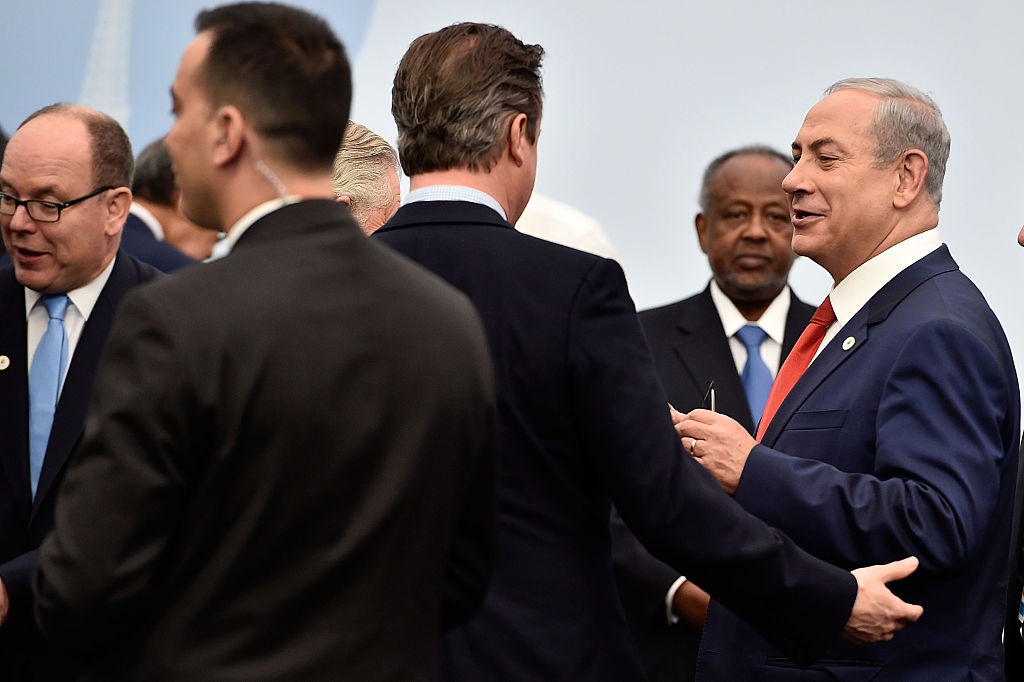World leaders took the stage at the Paris climate summit Monday to press the urgency of global action on climate change. “There is such a thing as being too late,” President Obama said in his speech; “when it comes to climate change, that hour is almost upon us.”
Yet leaders were very careful to balance that urgency with optimism.
While Obama’s remarks did offer some substance amid the flourishes—such as suggesting the United States “embrace our responsibility” for global warming as the world’s second biggest emitter—there was less policy and more of Obama’s hope-and-change rhetoric than we typically hear from him in the year 2015.
“One of the enemies that we’ll be finding at this conference is cynicism,” he said. “Our progress should give us hope during these two weeks—hope that is rooted in collective action.”
“We cannot afford indecision, half measures, or merely gradual approaches; our goal must be a transformation.”
That sounds a lot like Obama circa the fall of 2008, only it’s not campaign trail rhetoric we’re hearing from him this time. And it’s not just Obama using it.
Leaders from practically every major country involved in the talks were light on directives and heavy on rhetoric, especially rhetoric involving opportunity. China’s President Xi Jinping, for example, called on negotiators to “reject the narrow mentality of a zero-sum game,” and framed the Paris conference with cautious optimism, as “not the finishing line, but a starting point.”
“Tackling climate change is a shared mission for mankind,” he said in his brief remarks. “All eyes are now on Paris. Let us join hands to contribute.”
German Chancellor Angela Merkel was similarly Pollyannaish. “Billions of people are pinning their hopes on what we do in Paris,” she said. “Let us do everything we can not to dash those hopes, not to have them despair.” Christiana Figueres, the top diplomat for the United Nations Framework Convention on Climate Change, said that the eyes of millions of people around the world were on the governments meeting in Paris, “not just figuratively but literally.” U.N. Secretary General Ban Ki Moon added: “We cannot afford indecision, half measures, or merely gradual approaches; our goal must be a transformation.”

Even Hillary Clinton, who doesn’t even have a hand in climate talks this round, took time off from the campaign trail for a carpe-diem moment: “But at last—in Paris—the framework of a lasting solution is within reach,” she concluded in an op-ed published in Time. “We must seize this moment.”
The cheerleading approach may have something to do with lessons learned from Copenhagen in 2009. That was the year that world leaders stepped disastrously into the chaotic final hours of the climate talks to make last-minute entreaties; soon after, the deal failed spectacularly, when the U.N. General Assembly didn’t pass the proposal. Some of the smaller countries who’d refused to sign said they had felt left out of talks by major world leaders, whom they believed did not have their interests in mind.
This year, negotiators have made sure that dynamic won’t repeat itself. Instead of starting with the small fish (negotiators) and working up to the larger ones (Obama), the conference is starting with Obama and ending with the bureaucrat-types you’ve never heard of—the ones who will actually hash out the mundane but critically important policy details on which the larger agreement depends.
It’s an engagement approach that mirrors the bottom-up system negotiators have used for the first time this year to solicit emissions reduction targets for each country—the so-called Intended Nationally Determined Contributions (INDCs). (Individual countries can better determine what they’re capable of doing than outsiders, the thinking goes, and if they come up with their own plan, they’ll be more invested in it.) By speaking early in the conference—and by keeping their talk relatively light and inspirational—world leaders seem to have learned at least one lesson from the Danish catastrophe of 2009.
We’ll find out whether it worked in two weeks.

“Catastrophic Consequences of Climate Change” is Pacific Standard’s aggressive, year-long investigation into the devastating effects of climate change—and how scholars, legislators, and citizen-activists can help stave off its most dire consequences.




